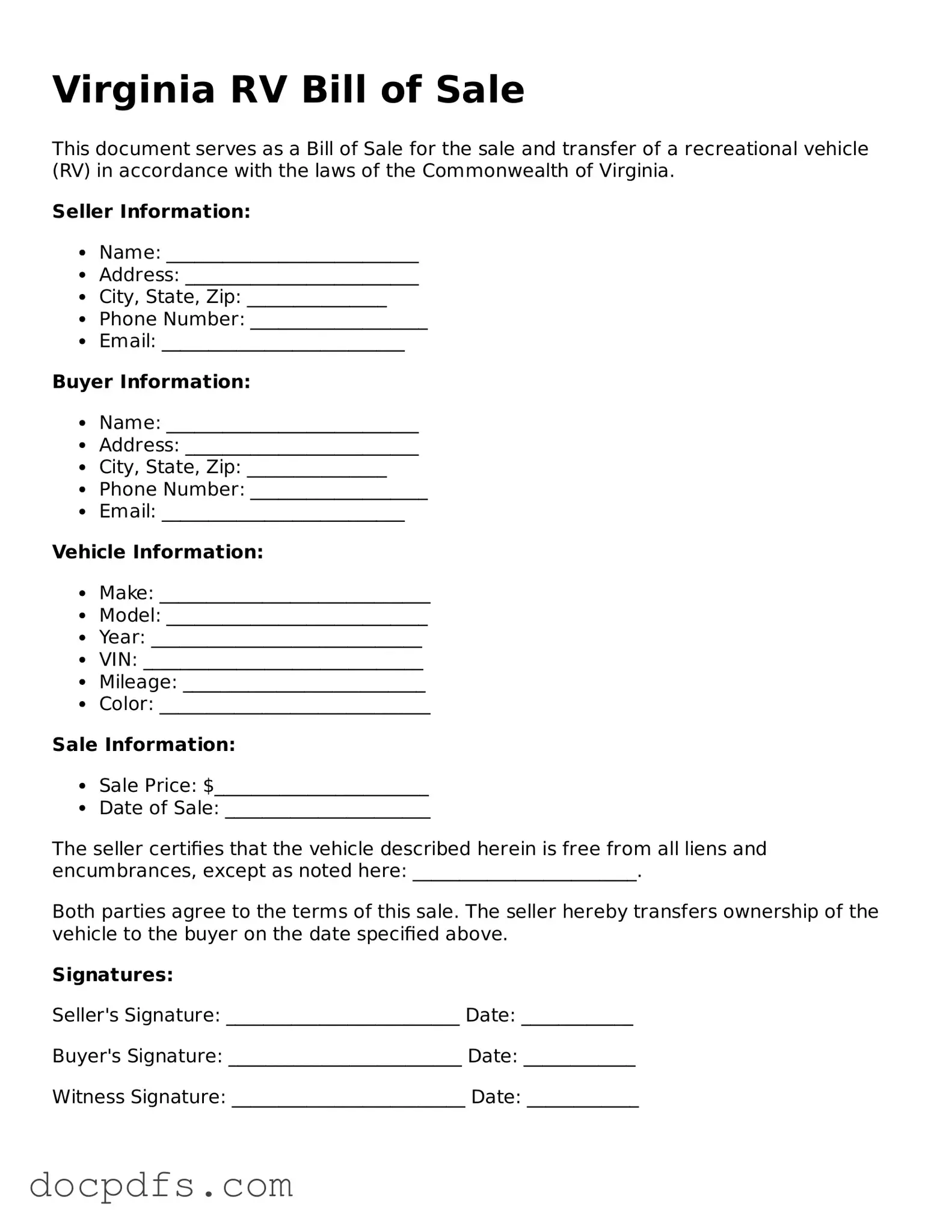What is a Virginia RV Bill of Sale?
A Virginia RV Bill of Sale is a legal document that records the sale of a recreational vehicle in the state of Virginia. This form serves as proof of the transaction between the seller and the buyer, detailing the terms of the sale and providing important information about the vehicle.
Why is a Bill of Sale necessary?
A Bill of Sale is essential for several reasons:
-
It provides legal protection for both the buyer and seller.
-
It helps establish ownership of the vehicle.
-
It can be used to register the RV with the Virginia Department of Motor Vehicles (DMV).
-
It serves as a record of the sale for tax purposes.
The Virginia RV Bill of Sale typically requires the following information:
-
Names and addresses of both the buyer and seller.
-
Description of the RV, including make, model, year, and Vehicle Identification Number (VIN).
-
Sale price of the RV.
-
Date of the transaction.
-
Signatures of both parties involved in the sale.
You can obtain a Virginia RV Bill of Sale form through various sources. Many online legal document services offer customizable templates. Additionally, you can check with the Virginia DMV or local government offices for official forms.
Is the Bill of Sale required for all RV transactions?
While a Bill of Sale is not legally required for all RV transactions in Virginia, it is highly recommended. Without this document, buyers may face challenges when registering the vehicle or proving ownership in the future.
Can I create my own Bill of Sale?
Yes, you can create your own Bill of Sale as long as it includes all the necessary information. Ensure that it is clear, accurate, and signed by both parties to avoid any disputes later on.
What if the RV has a lien?
If the RV has a lien, it is crucial to disclose this information in the Bill of Sale. The seller should provide proof that the lien has been satisfied or ensure that the buyer is aware of the existing lien before completing the sale.
Do I need to have the Bill of Sale notarized?
Notarization is not required for a Virginia RV Bill of Sale; however, having it notarized can add an extra layer of authenticity and protection for both parties involved in the transaction.
How do I register the RV after the sale?
To register the RV after the sale, the buyer must visit the Virginia DMV. They will need to provide the completed Bill of Sale, proof of identity, and any additional documentation required for registration. Payment of applicable fees will also be necessary.
What should I do if I lose the Bill of Sale?
If you lose the Bill of Sale, you can create a new document that outlines the details of the original transaction. Both parties should sign this new document. If possible, it’s advisable to keep a copy of the original Bill of Sale in a safe place to prevent future issues.

